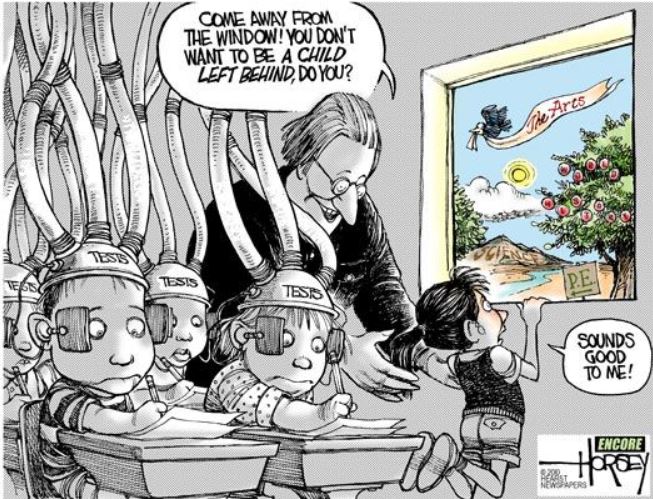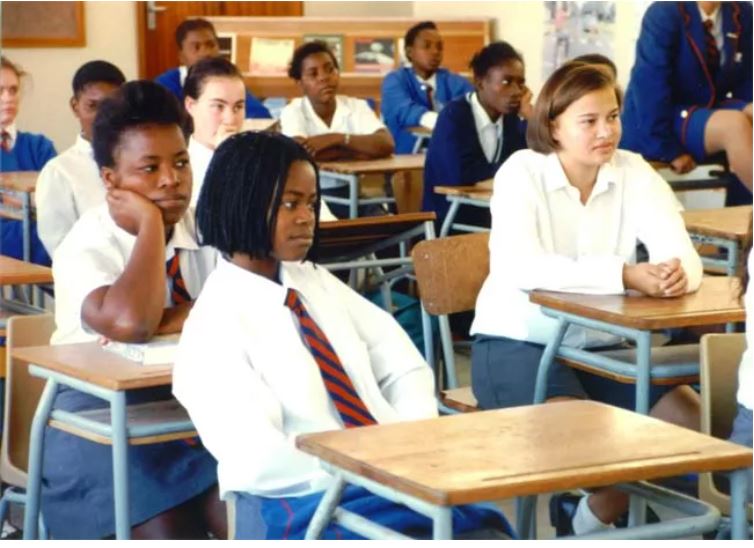

What exactly are we teaching in schools?
Welcome back! Last time we were here we wrapped up our discussion on both the inward and outward design of school-prisons, which is how I will be addressing public schools from this point forward. We discussed how the over-policing and consistent praise of obedience in schools makes students fearful of authority, afraid to ask questions, and unable to immerse themselves in true education and expansion of the mind. We ended the last blog by stating that “An education system that demands obedience, especially in place of creative thought or civil discourse, does not deserve to be called an education system.” Well, this time we’re going to look at the effects of an “education system” that demands obedience and praises routine over unlocking curiosity and fostering imagination. If schools are not creating environments that actually foster learning…then what exactly is it doing to students?

Boredom is truly the weed that kills the budding rose of learning. Boredom has no room in education, so why is it rampant in our school? Think back to your years of formal schooling. What was the worst part of the school day? Was it eating lunch and discussing events and ideas with your friends? Was it creating new games at recess when the jungle gym and swing set grew tiresome? Was it when the final bell rang and you could go home? Most likely not. Odds are the worst part of your school day was…the actual school day. It was the monotony of going to a dull building, learning useless material, sitting still, copying from a chalkboard (or smartboard), and adhering to a bell like a late 20th century Lowell girl. School was the worst part of school for too many students. It was irrelevant at best and dangerous at its worst.

"School was the worst part of school for too many students."
You had teachers who cared just as much as you did about the subjects they taught, and most couldn’t even give a concrete answer to how what they teach is relevant to everyday life. The subjects felt outdated and the assignments were meaningless. You could easily pass classes with little to no actual effort. Grades mattered more than understanding anything, and any effort to liven up the class with a provocative question or sly joke is met with anger and discipline by most teachers and administrators. As a result, classrooms are lifeless, and students are left, angry, dissatisfied, and bored.
So that leaves us with what exactly? It leaves schools, communities, and the world at large with citizens who are unengaged in the world around them, and are either unwilling or incapable of asking important questions needed to move society forward. We are left with citizens whose ingenious ideas, inventions, and beliefs die only moments after conception, choked by the thrones of mundane memorization and routine, and starved by a system that demands we give up innate individuality for forced passive conformity. We get students that find it easier and in most cases more rewarding to be on autopilot, to kill their curiosity and take on the role of an infantile consumer- being told what to think, how to think, what to wear, what to buy, and ultimately, how to live.

If one cannot express their own creativity, explore their own curiosity, or learn the rules of life in their own way (or create their own rules to live by), then they are forced to adopt the posture of permanent subordination. They no longer have the tools needed to govern their own thoughts, or lives, and must be commanded by the powers that be on how to be human. We are, in a terrifying sense, breeding children. We are indoctrinating students into a worldview that discourages personal passions and values a simple, more digestible form of humanity that can be bought trinkets and sold lies. You can tell a child anything and they’ll believe it. You can show them something shiny and they will want it. Is it possible that maybe that’s the goal?
Well, that is a harder question to answer than one might think. There is not necessarily a defined list of subjects students do or do not need to know. I think what we all agree on though, is that students should learn to think. Thinking about a problem critically, how it was created, and who it affects, can help breed creative solutions. Thinking about others, especially those who are so unlike you, breeds empathy, compassion, and curiosity. Thinking about how systems of the world operate breeds a sense of responsibility, to go out and make the world a more peaceful, just place. Thinking about yourself breeds introspection, self-awareness, and humility. Most of all, thinking for yourself breaks the cycle of school, and leads you closer to education, in its truest form.
Gatto, John.How Public Education Cripples Our Kids and Why. [online] Natural Child. Available at: <https://www.naturalchild.org/articles/guest/john_gatto2.html> [Accessed 25 June 2021].
Gatto, J., 2000. The underground history of American education. New York: Oxford Village Press.
Cubberley, E., 1919. Public Education in the United States: A Study and Interpretation of the American Educational History. 1st ed. Boston: Houghton Mifflin Co.
HPHR.org was designed by ComputerAlly.com.
Visit HPHR’s publisher, the Boston Congress of Public Health (BCPH).
Email communications@bcph.org for more information.

Click below to make a tax-deductible donation supporting the educational initiatives of the Boston Congress of Public Health, publisher of HPHR Journal.![]()